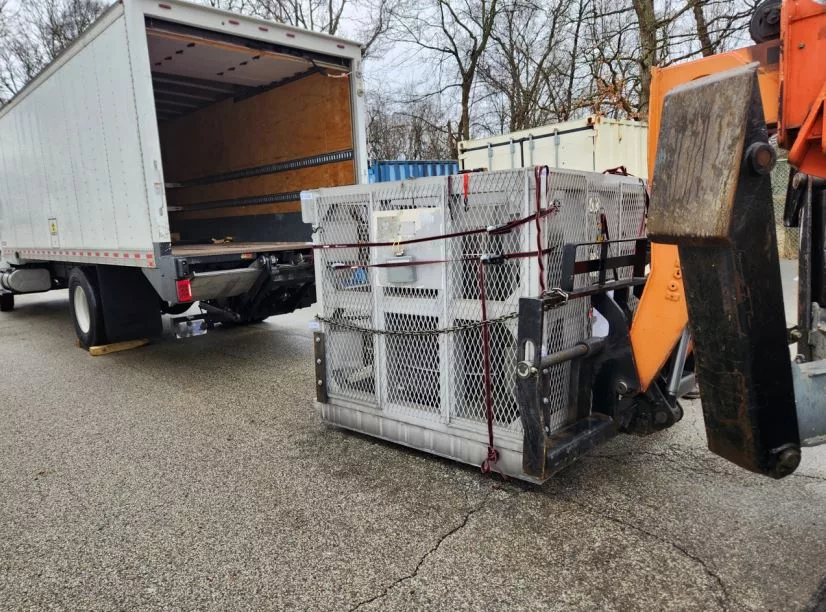
Home » Company with Tri-Cities ties to power space, maritime missions
Company with Tri-Cities ties to power space, maritime missions

Zeno Power has secured Strontium-90 from the U.S. Department of Energy to use as fuel in its radioisotope power systems, or RPSs. The Strontium-90 comes from an old RPS that was stored at Oak Ridge National Laboratory in Tennessee for nearly 40 years. RPSs are nuclear batteries that can power exploration in space, on the seafloor and in other off-the-grid places.
Courtesy Zeno PowerFebruary 14, 2024
A company with ties to the Tri-Cities is a step closer to commercializing technology that can power exploration in space, on the seafloor and in other off-the-grid places.
Zeno Power has secured Strontium-90 from the U.S. Department of Energy, or DOE. The radioactive isotope will be used as fuel in Zeno’s radioisotope power systems, or RPSs.
The company has more than $40 million in contracts with the U.S. Department of Defense and NASA to produce the nuclear batteries, which convert heat from decaying radioactive isotopes into electricity.
The Strontium-90 comes from an old RPS that was stored at Oak Ridge National Laboratory in Tennessee for nearly 40 years. It will be enough “to get our technology deployed, deliver on our first contracts (and) bring it to market,” said Tyler Bernstein, Zeno co-founder and chief executive officer.
More will be needed in the future, he said.
“This is hopefully the beginning of our relationship with the Department of Energy in the development of these fuel supply chains,” Bernstein said, noting that the Hanford nuclear site north of Richland and other DOE facilities also have materials that could be repurposed as fuel for Zeno’s RPSs.
“This public-private partnership can help set the precedent for how industry and the government can work together to reduce the liability to the Department of Energy and provide an asset to support national security and space exploration missions,” Bernstein told the Journal of Business.
Zeno Power, which formed in 2018 and has offices in Seattle and Washington, D.C., is on track to begin delivering RPSs to customers and to broadly commercialize its RPS technology by 2026.
The company has a strong connection to the Tri-Cities.
In Zeno’s early days, Bernstein visited for a conference at Pacific Northwest National Laboratory on nuclear and emerging technologies in space and was inspired by what he learned there.
Later, Zeno designed, built and tested the first-ever commercially developed radioisotope heat source through a partnership with PNNL. The work was done at the laboratory’s Radiochemical Processing Laboratory in Richland, and it was celebrated with a local event last fall.
RPSs have been around for years, powering space and maritime missions by agencies such as NASA and the defense department. But they haven’t previously been feasible for broader use for reasons including that they were too heavy or relied on isotopes that aren’t readily available.
However, Zeno has designed a way to increase the specific power of the heat source and it’s created a system that’s lightweight, affordable and scalable, company officials have said.
Bernstein said he expects the Tri-Cities to continue playing a role in his company’s story.
“We see the Tri Cities being a very important community for Zeno moving forward, given the opportunities for fuel supply chain development and hopefully future fabrication work for our heat sources and our power systems,” he told the Journal of Business in an interview.
Securing the Strontium-90 from DOE is a milestone moment, he said.
“This is just the beginning of our journey,” he said. “We hope this work that we’re doing...will help set the precedent for how government and industry can work together in the future at other Department of Energy sites, such as Hanford, to continue to convert a liability into an asset that we can use to enable these next generation of critical missions from the seabed to the surface of the moon.”
Latest News Local News Energy
KEYWORDS February 2024
Related Articles





